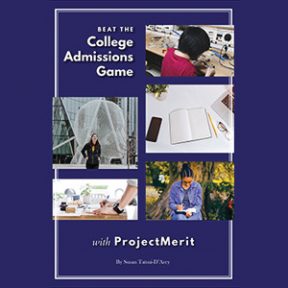 Until today, I considered Trump’s discussion about the Wall to be just another distraction while he revved up his political base and conspired to build his personal empire. Trump is a master of smoke and mirror tactics and he’s kept the nation in the dark about our national security in the Arctic Sea.
Until today, I considered Trump’s discussion about the Wall to be just another distraction while he revved up his political base and conspired to build his personal empire. Trump is a master of smoke and mirror tactics and he’s kept the nation in the dark about our national security in the Arctic Sea.
According to Rep. Lucille Roybal-Allard (D-Calif), “The United States is at an increasing disadvantage in the Arctic compared to the Russian fleet and we can no longer afford to delay,” she said. “This is a major area of weakness in our national security.” Russia has stepped up its production of icebreaker ships to meet President Putin’s vision of the Arctic Sea as the future of the Russian empire. As the world’s super power, the United States is not prepared to protect this region.
I knew he was pulling funds to build the Wall from somewhere, but didn’t know where until now. The 2018 budget originally included $169 million for the Coast Guard’s Icebreaker Program to build another 1 icebreaker ship to replace our only ship capable of handling national security and emergency services in the Arctic Sea. Russia has 40 icebreakers – almost more than all nations combined. We have just 4; but only 2 for military purposes.
Although $750 million had been approved to build the new icebreaker ship in the 2019 budget, the House recently stripped ALL icebreaker funds in order to build the $5 BILLION wall. The lame duck Congress faces a crucial decision to approve the construction of the icebreaker or divert funds for the wall by Dec. 21st. Seriously, this wall nonsense has gone on for too long.
The Coast Guard’s polar mission also includes gathering scientific data, rescuing ships stranded in ice, and investigating oil spills. The Coast Guard’s only icebreaker, the Polar Star, is over 40 years old and more than 12 years past the recommended date to replace it.
What’s worse, more ships are traveling through the Arctic Sea because of the vast melting of the glaciers. With more traffic, ships are spilling oil, smuggling illegal cargo, and getting stranded. We need more icebreakers to provide both environmental and humanitarian crises.
Don’t get distracted by all the noise from the White House. Follow the money to see what is really going on. I could think of a dozen real issues that could benefit from the $5 billion dollars that Trump has allocated to build that ridiculous wall!
[Source]



 In order to receive financial aid for college, students must submit the FAFSA and/or CSS Profile. While all public and private colleges use the FAFSA, about 400 private colleges also require the CSS Profile. After you complete these online reports, the FAFSA and CSS Profile will send Student Aid Reports (SARs) to each of your colleges. You can start this process as early as October 1st and the sooner the better. Colleges won’t give you a financial aid awards letter until they have received the FAFSA and/or the Profile. They need this financial information before they make recommendations about what the parents and students could afford to pay for college.
In order to receive financial aid for college, students must submit the FAFSA and/or CSS Profile. While all public and private colleges use the FAFSA, about 400 private colleges also require the CSS Profile. After you complete these online reports, the FAFSA and CSS Profile will send Student Aid Reports (SARs) to each of your colleges. You can start this process as early as October 1st and the sooner the better. Colleges won’t give you a financial aid awards letter until they have received the FAFSA and/or the Profile. They need this financial information before they make recommendations about what the parents and students could afford to pay for college.
 Finally, an ivy-league college will offer the first online bachelor’s degree! The University of Pennysylvania (UPenn) will open an online program for undergraduates studying liberal arts starting fall 2019. This is a game changer; and I believe it will be instrumental in making sure that a quality elite education can be had by everyone. While the tuition is about $1000 less per course for the online classes, this is the beginning of a movement to keep education affordable.
Finally, an ivy-league college will offer the first online bachelor’s degree! The University of Pennysylvania (UPenn) will open an online program for undergraduates studying liberal arts starting fall 2019. This is a game changer; and I believe it will be instrumental in making sure that a quality elite education can be had by everyone. While the tuition is about $1000 less per course for the online classes, this is the beginning of a movement to keep education affordable.
 If you aren’t a STEM genius and worry that you won’t ever have a good paying job, a new study says that more employers are seeking college grads with liberal arts degrees. Finally! First of all, can you imagine a world with only STEM (Science, Technology, Engineering, and Math) people? Umm, no! Who would do the communicating, marketing, writing, and education (just to name a few jobs)? The good news is that employers are recognizing how they really do need employees who can communicate, lead, and problem solve – in other words, people with degrees in humanities, social sciences and interdisciplinary programs.
If you aren’t a STEM genius and worry that you won’t ever have a good paying job, a new study says that more employers are seeking college grads with liberal arts degrees. Finally! First of all, can you imagine a world with only STEM (Science, Technology, Engineering, and Math) people? Umm, no! Who would do the communicating, marketing, writing, and education (just to name a few jobs)? The good news is that employers are recognizing how they really do need employees who can communicate, lead, and problem solve – in other words, people with degrees in humanities, social sciences and interdisciplinary programs.
 If you have ever doubted that the ocean is rising, this may surprise you. A small island off the northeast coast of Japan is now completely underwater. That’s right! It’s gone because of the rising sea level. The Japanese Coast Guard will confirm this in the next few weeks.
If you have ever doubted that the ocean is rising, this may surprise you. A small island off the northeast coast of Japan is now completely underwater. That’s right! It’s gone because of the rising sea level. The Japanese Coast Guard will confirm this in the next few weeks.
 With the holidays here, and budgets bursting at the seams, check out this interesting blog on creative ways to save money.
With the holidays here, and budgets bursting at the seams, check out this interesting blog on creative ways to save money. 
 One of the best things a high school student can do to improve their chances of getting into their top colleges is to do a project. With grade inflation making a 4.0 (or 5.0) GPA commonplace, students need to do something to stand out. It used to be that playing a sport and an instrument would be enough. Then volunteering for a charity or shadowing a professional would help beat the college admissions game. But today, colleges are looking for students who delve into and stick with something that fascinates them. Colleges want dynamic students who might design innovative devices, solve climate change, or find medical cures.
One of the best things a high school student can do to improve their chances of getting into their top colleges is to do a project. With grade inflation making a 4.0 (or 5.0) GPA commonplace, students need to do something to stand out. It used to be that playing a sport and an instrument would be enough. Then volunteering for a charity or shadowing a professional would help beat the college admissions game. But today, colleges are looking for students who delve into and stick with something that fascinates them. Colleges want dynamic students who might design innovative devices, solve climate change, or find medical cures.
 In a time when women are stepping up and speaking out, our Education Secretary Betsy DeVos just proposed to “protect” students accused of sexual misconduct while undermining victims’ rights. Seriously? One step forward, two steps backwards.
In a time when women are stepping up and speaking out, our Education Secretary Betsy DeVos just proposed to “protect” students accused of sexual misconduct while undermining victims’ rights. Seriously? One step forward, two steps backwards.
 If you’ve got a toddler or preschooler, finding quality childcare is probably an ongoing concern. Millennials spend more time with their children than any previous generation, and with their flexible work schedules, they need childcare that works for them. When my girls were toddlers, I set up childcare in my home so I could be with them yet still have the ability to work in my home office. By having childcare in my home, I customized a program that my girls loved and met all of my high expectations for academics, socialization, and exercise!
If you’ve got a toddler or preschooler, finding quality childcare is probably an ongoing concern. Millennials spend more time with their children than any previous generation, and with their flexible work schedules, they need childcare that works for them. When my girls were toddlers, I set up childcare in my home so I could be with them yet still have the ability to work in my home office. By having childcare in my home, I customized a program that my girls loved and met all of my high expectations for academics, socialization, and exercise!
 Back in 1999, 10-year-old Jaclyn (my youngest daughter) told me that Halloween should be on the Saturday BEFORE October 31st. She wanted to be able to trick or treat until midnight, sort and trade candies with her friends, and gorge herself on her favorite Sour Patches without having to worry about doing homework and going to school the next day. Apparently she was on to something.
Back in 1999, 10-year-old Jaclyn (my youngest daughter) told me that Halloween should be on the Saturday BEFORE October 31st. She wanted to be able to trick or treat until midnight, sort and trade candies with her friends, and gorge herself on her favorite Sour Patches without having to worry about doing homework and going to school the next day. Apparently she was on to something.